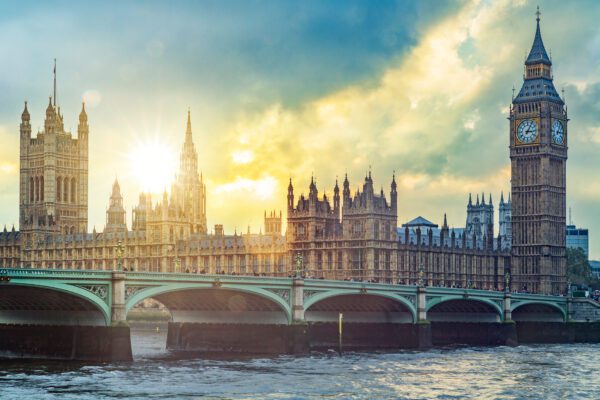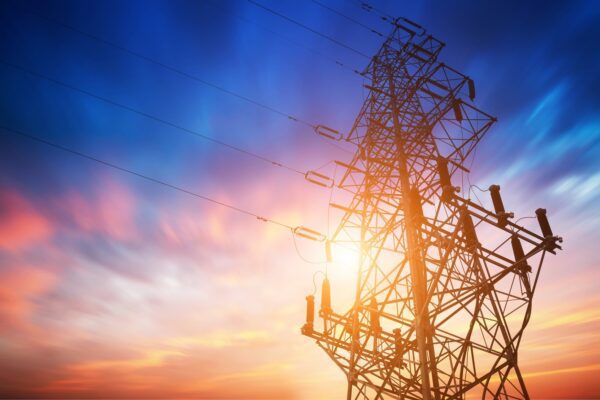
What did the King’s Speech say about utilities?
Introduction of Great British Energy and strengthening the powers of the water regulator were among the announcements featured in the King’s Speech on Wednesday 17 July.
Introduction of Great British Energy and strengthening the powers of the water regulator were among the announcements featured in the King’s Speech on Wednesday 17 July.
What is the King’s Speech?
The King’s Speech is a speech written by the government and delivered by the Monarch at the State Opening of Parliament.
The Speech marks the beginning of a new parliamentary year, or a session, and is an opportunity for the government to set out its legislative agenda for the coming months.
Each parliamentary session begins with the State Opening and runs for around 12 months. The length of sessions is not specified, but there are typically five sessions between each general election.
In the King’s Speech, the government typically sets out bills which it intends to introduce to Parliament in the session ahead, as well as other policy priorities which do not require legislation.
A new parliamentary session begins when the Monarch leaves the chamber. Members of both the House of Commons and House of Lords will now debate the contents of the King’s Speech, scrutinising different subject areas.
What was announced?
Utilities-related bills in the King’s Speech were:
The Great British Energy Bill
This Bill establishes Great British Energy – a new, publicly-owned energy production company which is set to own, manage and operate ‘clean’ power projects up and down the country.
The background briefing notes for the King’s Speech outline some of the reasonings behind the creation of Great British Energy. The policy paper states how it is highly unlikely that the scale and pace of investment required to deliver a decarbonised power system could be delivered by the private sector alone within the current institutional and policy landscape.
A public energy company, in combination with additional electricity market reforms, could help mitigate existing market failures, and therefore increase the speed and reduce the cost of deploying renewable generation capacity.
According to the Bill, the Great British Energy is set to:
- Develop, own and operate assets, investing in partnership with the private sector. Great British Energy will have a capitalisation of £8.3 billion of new money over the Parliament.
- “Facilitate, encourage and participate” in the production, distribution, storage and supply of ‘clean’ energy, the reduction of greenhouse gas emissions from energy produced from fossil fuels, as well as measures for furthering the transition to ‘clean’ energy and improving energy efficiency.
- The Bill gives the Secretary of State the ability to provide Great British Energy with the financial backing needed to meet its aims and ambitions. The Secretary of State will be required to prepare a strategic priorities statement for Great British Energy to ensure it focuses its efforts on government priorities.
This Bill will extend and apply UK-wide. The government is set to work closely with the Northern Ireland Executive on the scope of functions and opportunities for Northern Ireland.
Crown Estates Bill
The Crown Estate is a collection of lands and holdings in the United Kingdom belonging to the British monarch as a corporation sole, which is neither government property nor part of the Monarch’s private estate. This means they belong to the Sovereign for the duration of their reign but cannot be sold by them and the revenues from the assets do not belong to them.
One of The Crown Estate’s key roles is being the owner and steward of the seabed of England and Wales. In this role, The Crown Estate develops, prepares and leases out plots of seabed to offshore wind and other developers, such as those looking to build carbon capture infrastructure.
Extending and applying to England and Wales and Northern Ireland, the actions within this Bill include:
- Grants The Crown Estate the power to borrow. Currently The Crown Estate cannot use its large cash reserves to invest because it needs to hold these against the prospect of future financial losses. Enabling it to borrow from the Exchequer is set to free up these reserves to be invested in new projects. This is outlined as “particularly critical” for accelerating the pace of offshore wind deployment.
- Widens The Crown Estate’s existing investment powers, to enable investment in activities which complement its strategy and support wider government policy objectives, such as digital technologies to support offshore energy development and port infrastructure.
Water (Special Measures) Bill
Extend and applying to England and Wales, this Bill:
- Strengthens regulation to ensure water bosses face personal criminal liability for lawbreaking.
- Gives the water regulator new powers to ban the payment of bonuses if environmental standards are not met.
- Boosts accountability for water executives through a new ‘code of conduct’ for water companies, so customers can summon board members and hold executives to account.
- Introduces new powers to bring “automatic and severe” fines.
- Requires water companies to install real-time monitors at every sewage outlet with data independently scrutinised by the water regulators.
Other relevant bills
- Sustainable Aviation Fuel (Revenue Support Mechanism) Bill: This UK-wide Bill is set to support sustainable aviation fuel (SAF) production in the UK by providing revenue certainty to encourage investment in the construction of SAF plants across the UK. It introduces a revenue certainty mechanism for SAF producers looking to invest in new plants in the UK. This builds on the SAF mandate, which sets targets on fuel suppliers to use a proportion of SAF.
- Planning and Infrastructure Bill: Among other measures this Bill is set to streamline the delivery process for critical infrastructure, including upgrades to the national grid and renewable energy, The government is set to simplify the consenting process for major infrastructure projects and establish a review process where National Policy Statements can be updated every five years.
- Budget Responsibility Bill: This Bill will introduce a ‘fiscal lock’ which is set to ensure any Government making significant and permanent tax and spending changes will be subject to an independent assessment by the Office for Budget Responsibility, giving them the power to produce an assessment at a time of its choosing.
- Product Safety and Metrology Bill: Among other measures, this Bill updates the legal metrology framework, which governs the accuracy of weights and measures for purchased goods. This is set to allow for technological progress, for example enabling innovation whilst ensuring energy meters continue to be accurate in their readings.
- National Wealth Fund Bill: The National Wealth Fund is set to play a central role in the Government’s industrial strategy and growth and clean energy superpower missions.
Where can I find more information?
Background briefing notes for 2024 King’s Speech are available on the gov.uk website.
Did you know?
Traditions around the Monarch’s speech and the State Opening of Parliament can be traced back to the 16th century.
Before the Monarch arrives at the Parliament, the Yeomen of the Guard search the cellars of the Palace of Westminster for explosives to commemorate Guy Fawkes’s gunpowder plot of 1605.
A senior officer in the House of Lords, known as Black Rod, is one of the most well-known images of Parliament at the State Opening, as they act as the messenger of the sovereign.
Black Rod is sent from the Lords Chamber to the Commons Chamber to summon MPs to hear the Monarch’s speech. Before entering the Commons chamber, the door is shut in Black Rod’s face and the official will strike the door three times before it is opened. This practice dates to the Civil War and symbolises the Commons’ independence from the monarchy.
The current Black Rod, Sarah Clarke, is the first woman to serve the role.
What does this mean for you and your business?
More information about the impacts of the legislative and policy items announced in the King’s Speech will be revealed as the relevant documents are published.
We understand that changing policy and market landscapes can be difficult to navigate. You can speak to one of our dedicated energy experts to better understand your organisation’s position and requirements.
Get in touch today on 01772 689250 or email us at [email protected]










